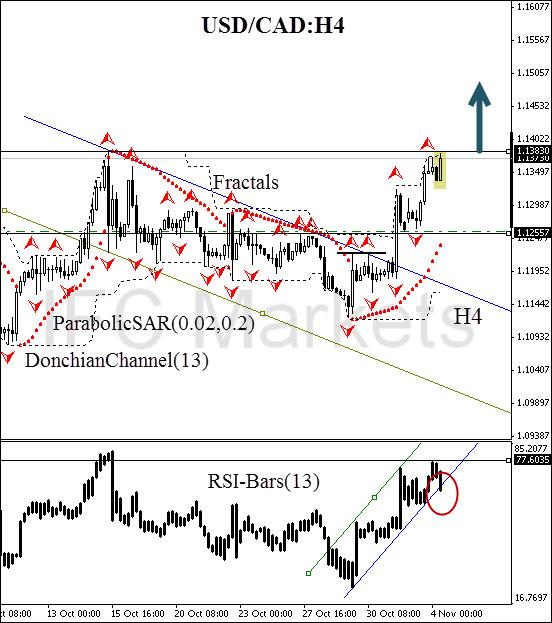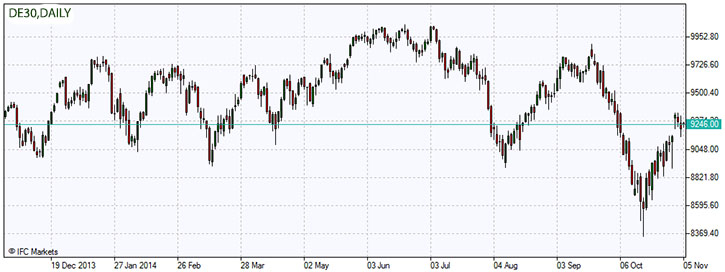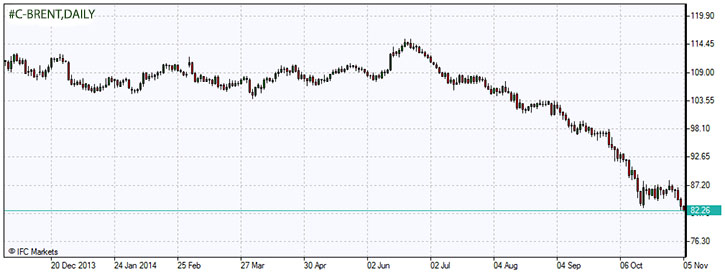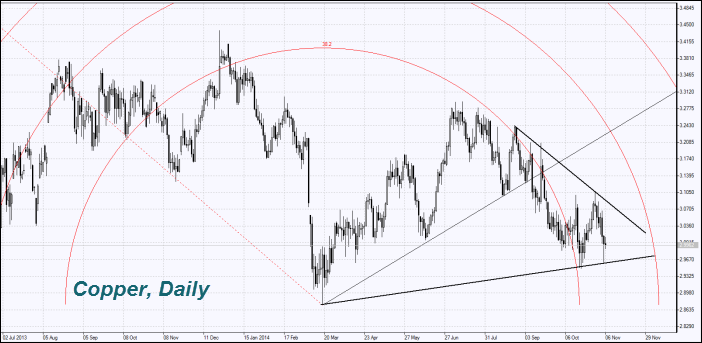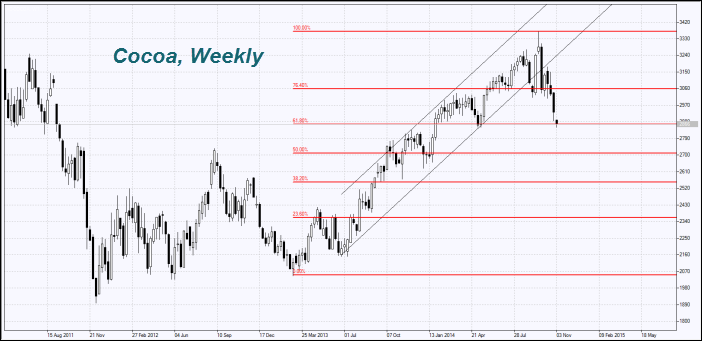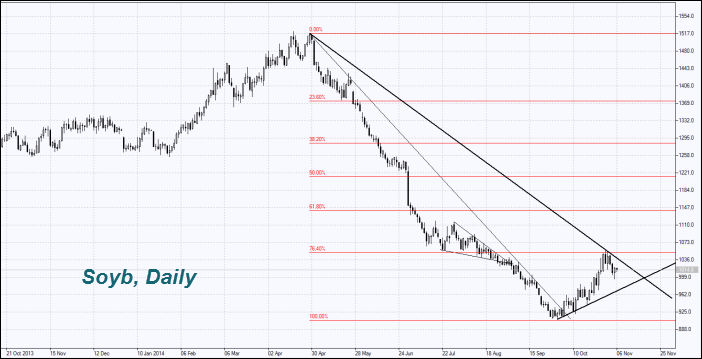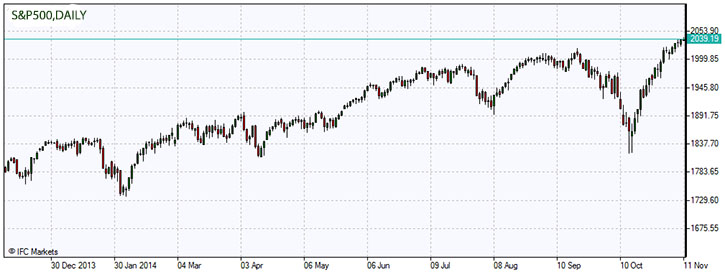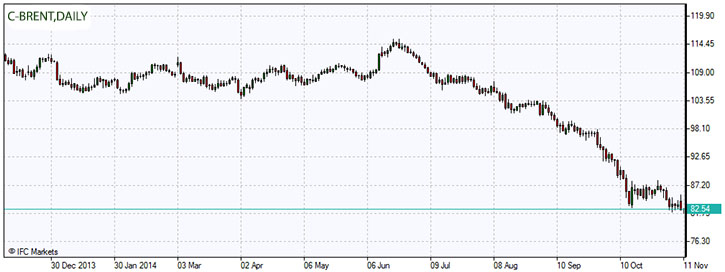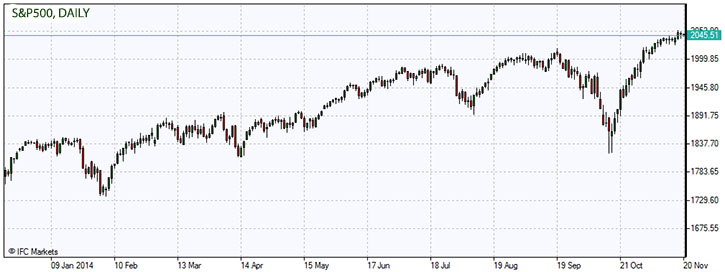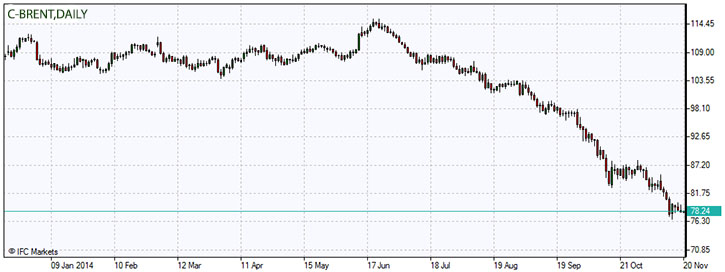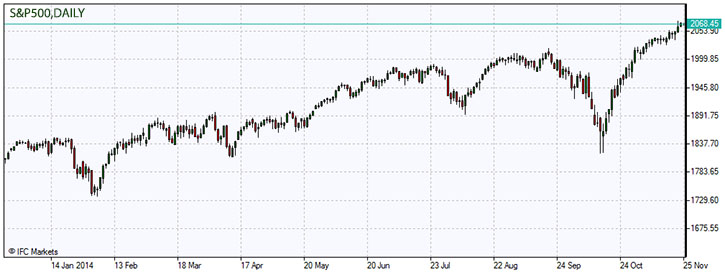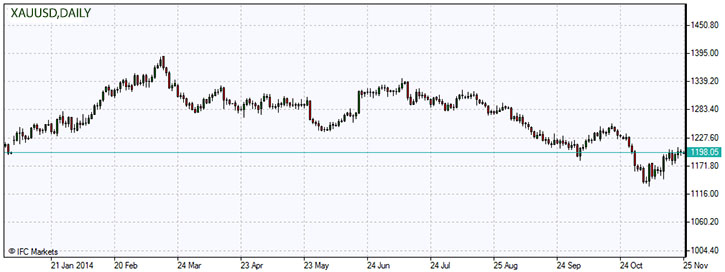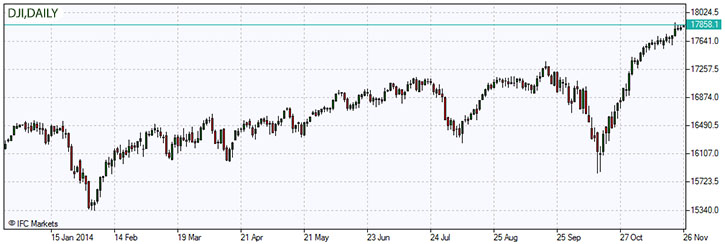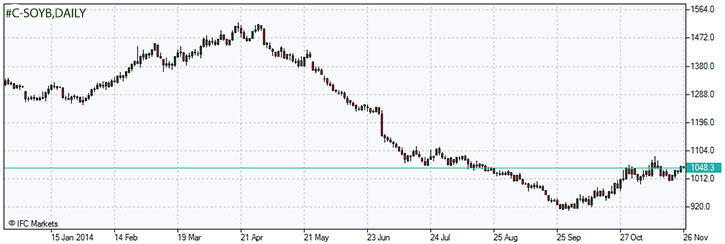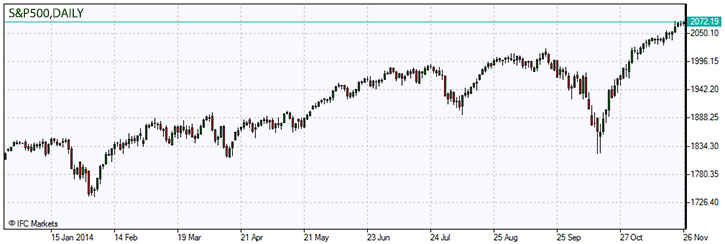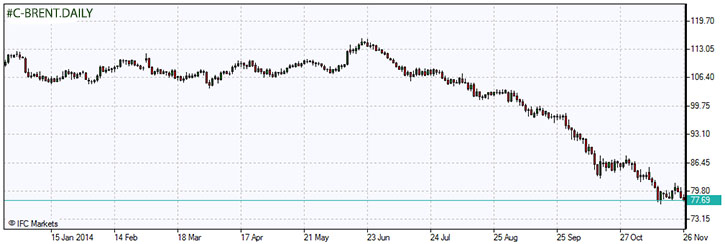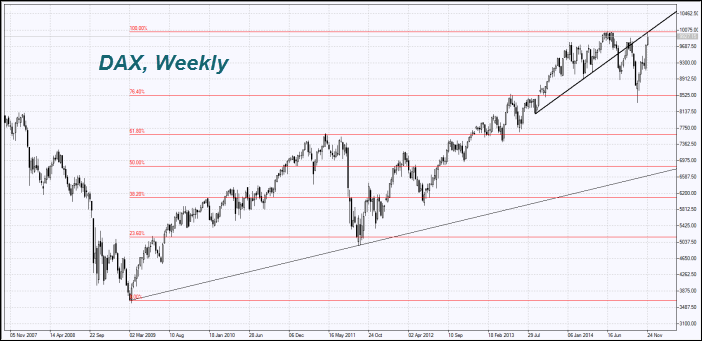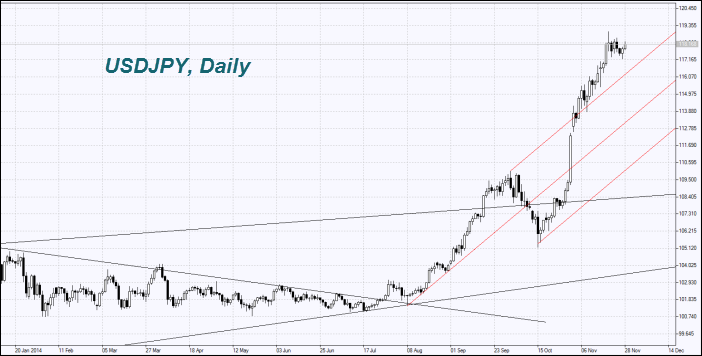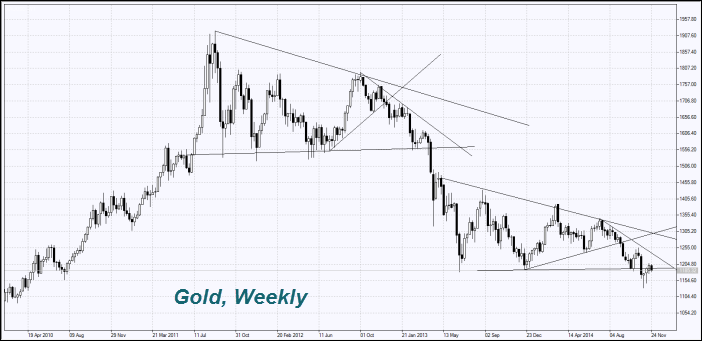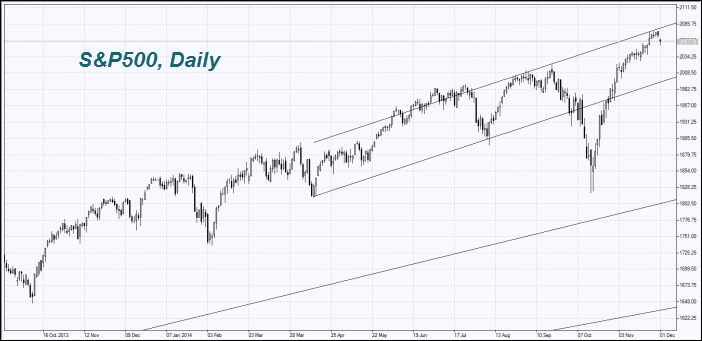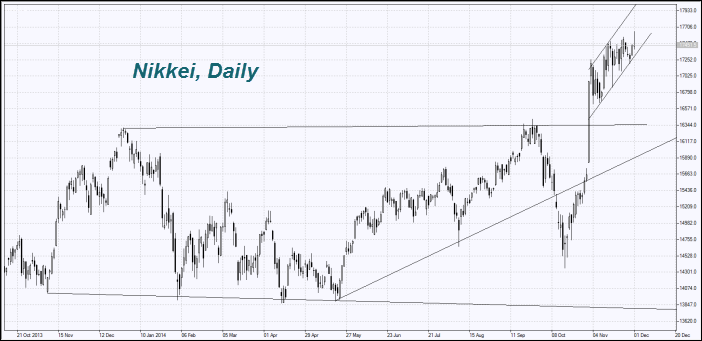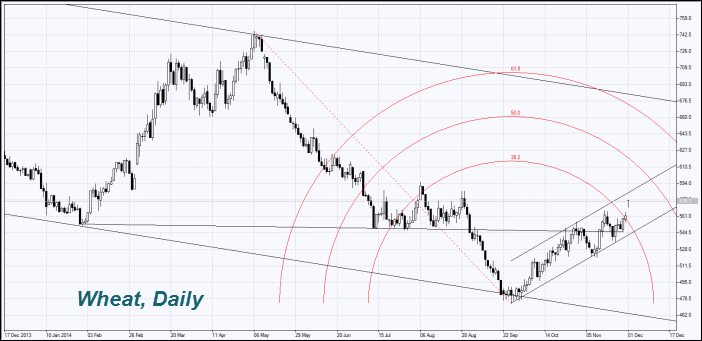The US markets ended Monday’s session marginally lower. The stock indexes were dragged down by falling energy stocks. Investors are getting rid of energy and materials sector stocks on the backdrop of falling oil prices. The S&P 500 hit an intraday record at 2,024.54, but finished the day marginally lower at 2,017.81 with the S&P 500 energy sub sector losing 1.7%. The
Dow Jones Industrial Average hit an intraday record of 17, 398.54, but ended lower, losing 24.28 points, or 0.1%, and closed at 17,366.24. Meanwhile, the Nasdaq Composite defied the general trend and finished up 8.17 points, or 0.2%, to 4,638. US economic data released on Monday were mixed and failed to boost investor sentiment. The Institute for Supply Management manufacturing survey index rose in October, but the final PMI index and construction spending fell. The ISM survey results showed the October manufacturing index jumped to 59% from a reading of 56.6% in September. At the same time the final reading of Markit’s US manufacturing purchasing managers index dropped to 55.9 in October from an advance reading of 56.2 and a September level of 57.9. The data on construction spending were also disappointing as they indicated a 0.4% fall in September against a forecasts for a 0.7% increase. Manufacturing data from Europe and China were also disappointing. At the same time, experts are optimistic about US stock market prospects, pointing to healthy earnings growth and the decision by the Japanese Government Pension Investment Fund to increase its holdings of foreign stocks to 25% of its monetary base (from roughly 16% currently). The reports of nearly 375 S&P 500 companies indicate earnings are growing at a nearly 10% pace, and revenue is up 4% to 5%, beating expectations. Furthermore, experts estimate the Japanese Government Pension Investment Fund will allocate about $60 billion for new purchases of non-Japanese stocks and that half could be invested in US stocks by the end of 2015 expansion, which would benefit US equity markets next year. A couple of economic reports are due today. Today at 14:30 CET US Trade Balance and Factory orders for September will come out. The tentative forecast is slightly negative, with the negative Trade Balance widening to an expected -$40.2 billion from -$40.1 billion in the previous month. The Factory Orders are expected to fall by 0.6% against a 10.1 % reduction in the previous month.

European stocks fell from a four-week high on disappointing euro zone and US economic data. Investors were disappointed by the results of Markit’s PMI survey for euro zone which indicated manufacturing activity in the euro zone grew slightly more slowly than thought last month and Germany recorded only marginal expansion while France and Italy contracted. The FTSEurofirst 300 index of top European shares ended 0.86 percent lower at 1,340.38 points after rising to as much as 1,355.16, the highest since early October. As experts note, the weak economic data increase the probability that the European Central Bank will take more aggressive measures to support the Eurozone economy. Stocks in Asia were mixed on Monday following the report on Saturday that China’s official manufacturing gauge came in at a five-month low of 50.8 for October. Markets in Australia and Hong Kong fell slightly while Shanghai gained. Tokyo was closed for a holiday.
Oil prices fell on Monday on weak global demand, stronger dollar and fears Saudi Arabia could announce another price cut after last month it slashed prices. December
Brent crude oil, which is widely seen as the global oil benchmark, fell $1.58 to $84.28 a barrel on London’s ICE Futures exchange. Oil extended an early decline after the reported increase of Institute for Supply Management’s US October manufacturing index pushed the US dollar index up 0.5%. Stronger dollar added further pressure on oil after data over the weekend showed China’s official manufacturing PMI dropped to a five-month low of 50.8 in October from 51.1 in September, indicating China’s economy is slowing down. China is the world’s second-largest oil consumer, and sagging oil demand, due to its slowing economy, has been partly responsible for the slump in global oil prices. And today Saudi Arabian Oil Co., known as Saudi Aramco, lowered the cost of its crude to the US. Aramco increased the cost to Asia and Europe. The price cut for US importers means the largest OPEC producer wants to preserve market share in US, which was falling recently due to expanding domestic production which has increased 54 percent in the past three years.
After slumping 2.3% to finish at $1,171.60 an ounce last week,
gold fell again on Monday. Gold for December delivery lost $1.80 to $1,169.80 an ounce. Rising dollar, helped by improving US economy and surprise announcement of the Bank of Japan on Friday about expanding its quantitative easing program, makes commodities more expensive. With no increase in global economic uncertainty the demand for gold and other safe haven assets has been declining recently. Elsewhere in metals trading, January platinum closed up $4.80, or 0.4% to $1,240 an ounce, while December palladium rose $11.45, or 1.45.%, to $803.25 an ounce.






